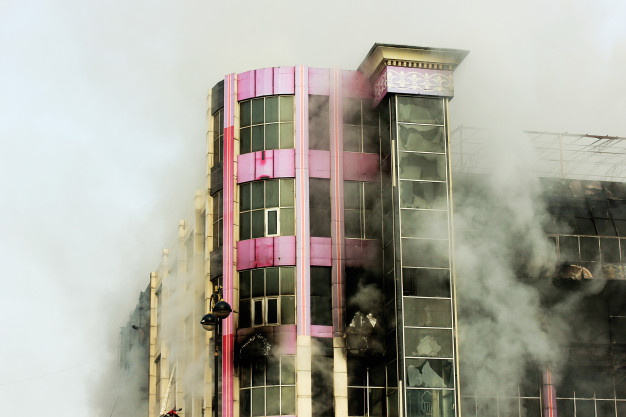State of Fire Safety Regulations in India

One of the most tragic fire incidents to have occurred this year is the deadly fire in a Surat Coaching centre that took the lives of 22 innocent children on 22nd May 2019. This incident and many such fire incidents continue to put fire safety infrastructure and safety provision guidelines of the country under the spotlight. According to the latest available data from the National Crime Records Bureau, India has lost 17,700 people in 2015 owing to gaping holes in the safety provisions of the country.
Fire services in India come under the 12th schedule of the Constitution under the provisions of Article 243W. Although there are various rules & regulations in place to prevent fire accidents, there are also a lot of shortcomings in the entire system that gives leeway to such accidents more often than not. One of the major concerns is the lack of proper training infrastructure in most of the fire departments in India. Many fire personnel are deprived of professional training and Proper organisational structure. What adds to the woes is insufficient funding which restricts technological progression for fire fighting.
In case of any fire accidents, it is very crucial for the fire-fighters to think on their toes and have acute understanding of the real time scenario. Unfortunately many fire-fighters are ill equipped to handle situations that go out of control than expected. There is also no Public Awareness (DOs & DON’Ts), regular conduction of mock exercises and evacuation drills which leads to public panicking and acting out of instincts rather than logical sense.
With more and more buildings rising and mushrooming in the cities, fires in residential buildings are become more complex resulting into huge property and life losses. Although there are safety norms defined by law, many buildings are found to be flouting these norms even at the cost of putting their residents at risk. No regular maintenance is done to keep the fire prevention systems installed in the buildings in check. Though Fire Safety Audit is found to be an effective tool for assessing fire safety standards of an organization, there are no clear cut provisions in any of the fire safety legislation in India, regarding the scope, objectives, methodology and periodicity of a fire safety audit.
It is high time these gaping holes were filled with strict actions. Fire Safety Audit should be made mandatory for all over India and any entity found flouting the safety norms must be severely punished. Only having safety regulations, codes and standards is not enough but it must be ensured that they are strictly complied with, with of course cooperation and responsibility of the residents and building owners as well.